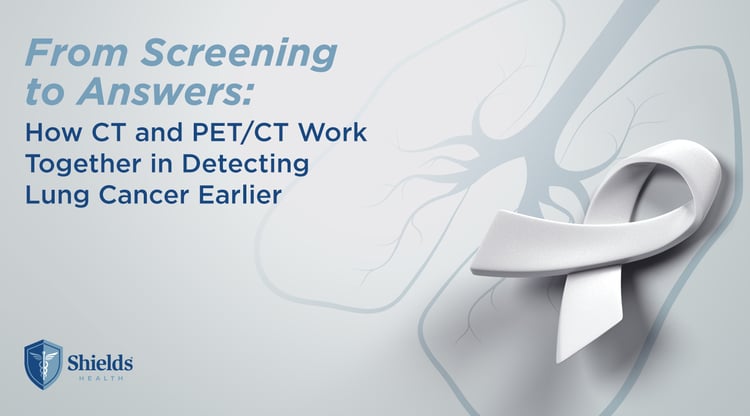
Early detection saves lives.
Low-dose CT (LDCT) scans have made it possible to screen for lung cancer earlier than ever before — often before symptoms appear and when it’s most treatable. Sometimes, a screening CT finds a small spot or “nodule” that isn’t clearly cancer or benign. That’s where PET/CT comes in.
Below are a few common questions about how PET/CT fits into the lung screening process.
What is a low-dose CT scan, and why is it important?
A low-dose CT scan (LDCT) is a quick, low-radiation scan that looks for tiny changes in the lungs. It’s the best tool available in screening for lung cancer at its earliest and most curable stages.
If my CT scan finds a spot, does that mean I have cancer?
Not necessarily. Most spots found on a CT scan are not cancer. Your doctor may recommend a PET/CT to get more information before deciding on the next step.
What does a PET/CT scan show?
A PET/CT doesn’t just show what your lungs look like — it helps to understand changes that might have been seen on CT. It helps doctors see whether a nodule is metabolically active, which can be a sign of cancer. This added information helps your care team decide whether a biopsy or surgery is needed, or if it’s safe to monitor the spot over time.
Why would my doctor recommend a PET/CT after a screening CT?
PET/CT gives your doctor a more complete picture without another invasive procedure. If the PET/CT doesn’t show any cancer activity, you may avoid a biopsy or surgery. If it does show activity, your doctor can act quickly to plan the best treatment.
It’s a way to get answers faster and ensure you only have the procedures you really need.
Where can I get these scans?
Low-dose CT and PET/CT scans are offered at many community hospitals and imaging centers through Shields Health partnerships — giving patients access to advanced imaging close to home, coordinated with their local doctors.
If you’re 50 or older and have a history of smoking, ask your doctor about lung cancer screening. Early detection and the right follow-up imaging can make all the difference.



